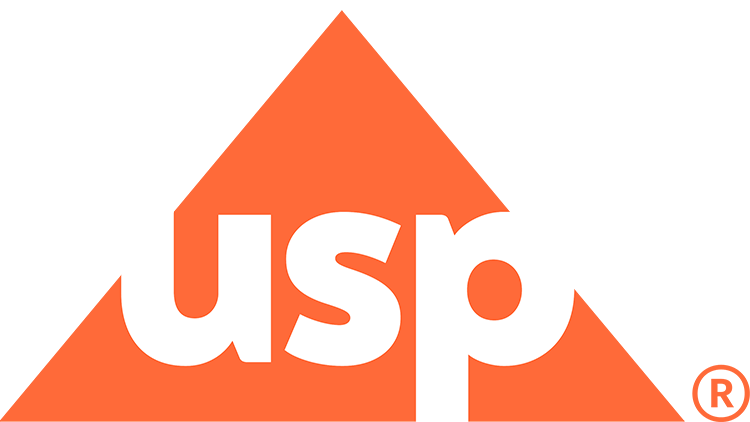
Expert: This World Standards Week, Remember USP Addresses Gaps Through Standards That Keep Pharmacy the Most Trusted Health Care Profession

Nakia Eldridge, PharmD, MBA, director of health care quality, safety, and information at US Pharmacopeia (USP), discusses points of note regarding USP’s work in setting and supporting public quality standards.
Pharmacy Times interviewed Nakia Eldridge, PharmD, MBA, director of health care quality, safety, and information at US Pharmacopeia (USP), on the importance of
Alana Hippensteele: Hi, I’m Alana Hippensteele with Pharmacy Times. It’s World Standards Week, so joining me today is Nakia Eldridge, PharmD, MBA, the director of health care quality, safety, and information at US Pharmacopeia, or USP, who is here to discuss the history of USP standards, what they are, and how they’re used.
So Nakia, can you start us off by telling me a bit about your background, and what brought you to USP?
Nakia Eldridge: Yes, thank you. I'm glad to be with you today. Well, I'm a pharmacist with specialized training in neonatology and pediatrics. I did residency and after that kind of went into NICU as a clinical specialist.
After that, I served several different roles in the hospital setting. I was a women and children's manager, a clinical coordinator, and eventually a director of pharmacy.
My story is a little funny in the sense that, as a director, I was in the midst of working on the construction and the planning of our USP <800> and <795> areas and being compliant and was kind of interacting with USP quite a bit on questions and issues that I had. In those conversations, I found out about a job opportunity and actually applied to USP, and that is how I got accepted and started to join the health care quality, safety, and information division at USP.
Alana Hippensteele: That's amazing. That's a really interesting story. Can you tell me a bit about your work at USP and how your expertise as a pharmacist plays a role in your daily work?
Nakia Eldridge: So when I joined USP, I joined as a leader for the health care patient safety and information team—and it was literally doing that: providing health care patient safety and information. Every day, what we work on is really patient-centered outcomes, utilization of technology to improve workflows and ensure safety, and different ways to support clinicians, particularly physicians, nurses, and pharmacists, in their work through the provisions of quality standards and solutions like toolkits and formularies data models and value sets that we're currently working on.
Alana Hippensteele: Yeah, that's really interesting. When you first joined the staff of USP, what was one of the most remarkable aspects of seeing the inner workings of the organization from the inside.
Nakia Eldridge: So when I joined USP, I had no real preconceived notions. I was previously on the receiving end of the standards. It was very, very eye opening when I started working with them and just saw the breadth of work that goes into the creation of standards. The fact that there's so many standards that USP has—I was so focused on compounding, I had no idea that they had packaging standards and labeling standards, and so much information for people to tap into.
Then the other thing that I found very, very impressive about USP was the volunteers really got to learn that it takes a village of independent experts to put a standard together. I've been amazed to see their dedication, but also stick to the science, and really make sure that the standards that they put out have quality and can be trusted.
Alana Hippensteele: Right. Since this is World Standards Week, what do you want other pharmacists to know about public quality standards and USP?
Nakia Eldridge: Well, happy World Standards Week. First of all, I think what's really important about quality standards is that you want to make sure they're of high quality, and that there's something that you can depend on.
What I appreciate about USP is that we aim to keep the most trusted profession of pharmacy and provide them with the most trusted information and the highest quality, trustworthy standards from the manufacturing of the medication to the packaging, to the labeling, to storing, to the preparing, and down to the handling of those medications.
What I really appreciate about USP is that it's about addressing the gaps and providing those solutions for those gaps, and not to you, but with you, in the sense that it's a bunch of scientists and practitioners who are trying to provide standards and solutions for other scientists and practitioners. So it's been really fun to see the engagement and as we work to provide the standards really to have people participate in that.
Alana Hippensteele: That's really beautiful. What changes are on the horizon at the intersection of public quality standards and pharmacy?
Nakia Eldridge: So what's been interesting about USP is that USP is a 200-year-old institution. But it's still around because it focuses on the challenges of today, and how to address the challenges of today.
So right now, knowing that there's challenges around personalized medicine and digital health, and that this future of pharmacy is changing, and the landscape is changing. It's been fun watching us try to figure out how we can intersect with this changing landscape and provide standards to help people in this new world of personalized medicine and digital health with new challenges.
Alana Hippensteele: Absolutely. Thank you so much for taking the time to speak with me today, Nakia.
Nakia Eldridge: Thank you for having me.
Newsletter
Stay informed on drug updates, treatment guidelines, and pharmacy practice trends—subscribe to Pharmacy Times for weekly clinical insights.


























